We had lunch in Zahle at one of the outdoor restaurants next to the Bardouni River called Café Nmeir. You would think that by now I would be used to the Lebanese way of eating—small plates of this and that, but lots of them—but it continues to surprise me. They bring out the saj and the hummous and the tabbouleh, which I am becoming quite addicted to, and many, many more plates—fattoush, that chunky tomato and cucumber salad with pomegranate seeds, and the olives and bowls of almonds, the yogurt cheese balls (like labneh), and chargrilled eggplant, and stuffed vine leaves, and falafel and on and on and you think, certainly that is our lunch.
But that is just the start. That is just the mezze. Then there are the lambs’ kidneys and chicken with rice, the stuffed cabbage and a couple of fish dishes. And just when you think you are about to explode, they bring out dessert—dark red strawberries, thick slices of sweet melon, date cookies and orange cake. And, of course, lots and lots of cups of Lebanese coffee.

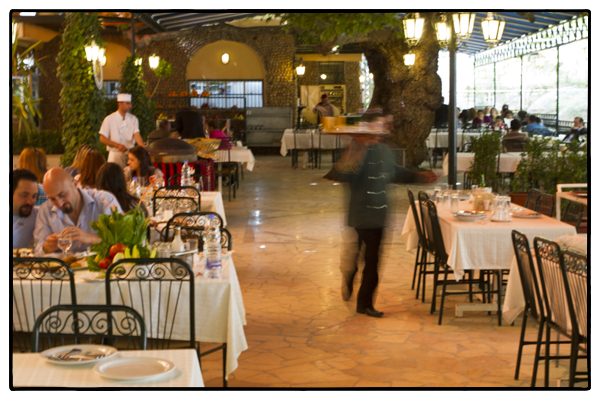
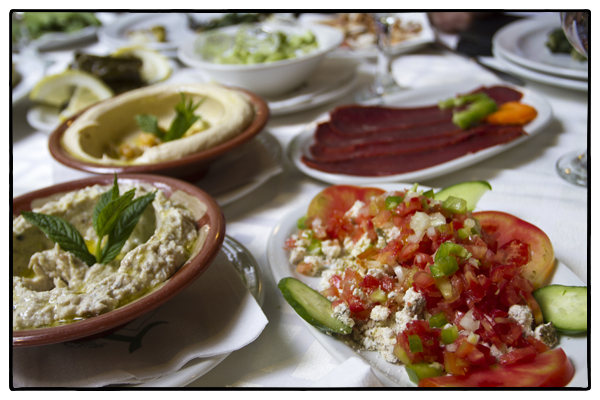
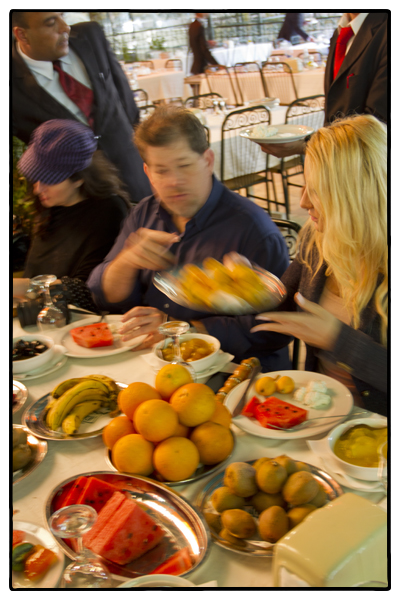
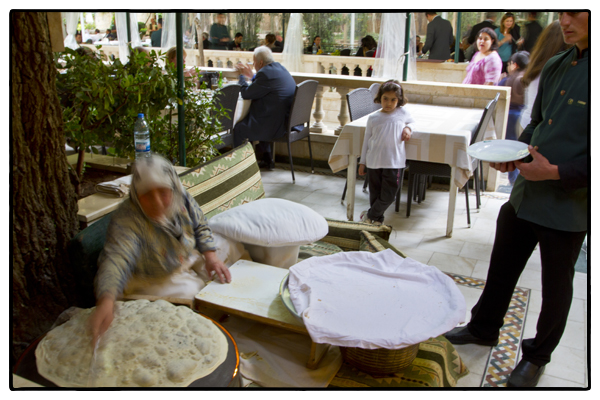
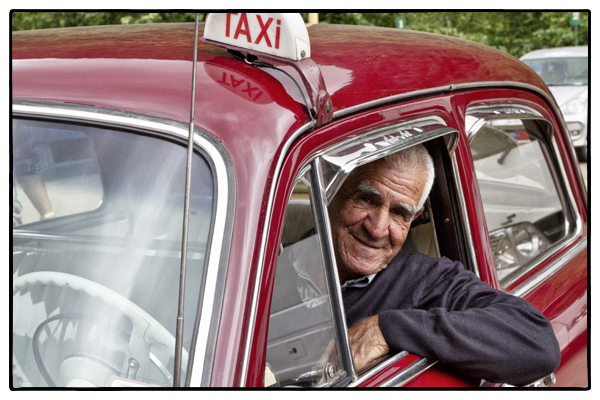
Recent Comments